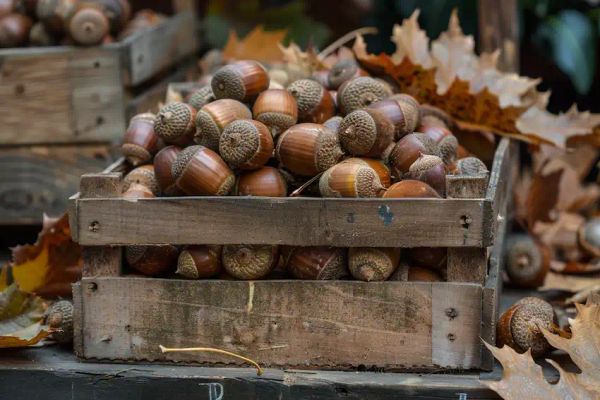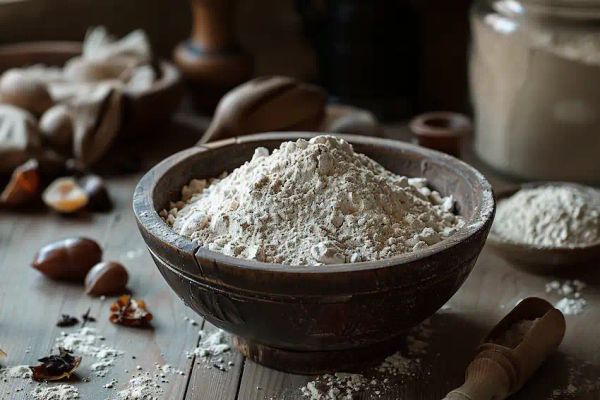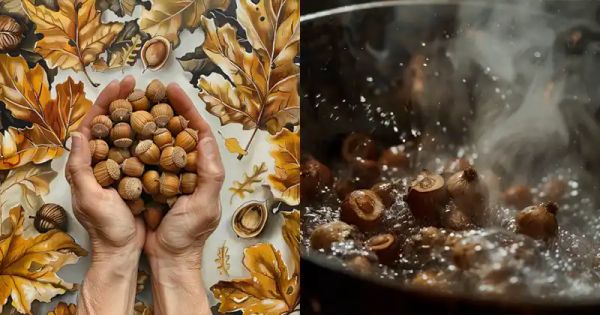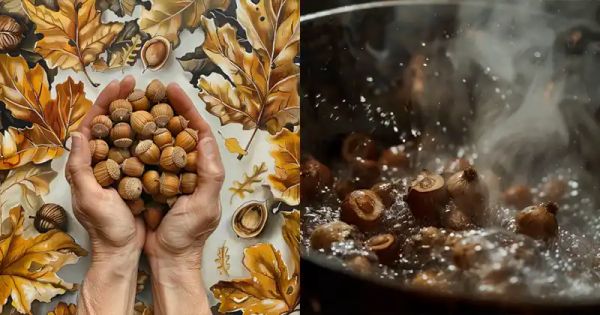Imagine a world where the secrets of nutrition lie in the humble acorn, a treasure hidden within the vibrant colors of autumn. Although often overlooked in our modern era, acorns have nourished both creatures and cultures throughout history. This article is a journey towards rediscovering the potential of acorns as a sustainable food source, packed with nutrition and health benefits. By embracing acorns in our diet, we not only honor our ancestral foragers but also take a step towards a sustainable and healthy lifestyle.
Unveiling the Health Benefits of Acorns
Acorns are more than just survival food – they hold a wealth of health benefits that deserve recognition. Let’s explore some of the virtues these nuts possess:
1. Rich Nutrient Profile: Acorns are packed with essential nutrients like vitamins A and C, crucial for immune function and skin health. They also provide a good dose of B vitamins, which support energy metabolism and brain health.
2. Mineral-Rich: These nuts are a natural source of vital minerals such as potassium, calcium, and magnesium. These minerals play key roles in regulating blood pressure, maintaining bone health, and enabling hundreds of essential biochemical reactions in the body.
3. High in Fiber: Acorns are high in fiber, promoting healthy digestion, preventing constipation, and contributing to a balanced gut. Additionally, fiber aids in maintaining a healthy weight and reduces the risk of heart disease.
4. Antioxidant Power: Acorns contain antioxidants that combat oxidative stress, reduce inflammation, and lower the risk of chronic diseases such as heart disease, diabetes, and cancer.
5. Heart Health: The unsaturated fats in acorns contribute to a healthy heart by lowering bad cholesterol levels and potentially reducing the risk of heart disease.
6. Gluten-Free Alternative: Acorn flour offers a gluten-free option for baking and cooking, making it an excellent choice for individuals with gluten sensitivities or celiac disease.
7. Energy Boosting: Being energy-dense, acorns provide a sustained release of energy, making them perfect for an active lifestyle.
8. Sustainable Food Source: Foraging for acorns reconnects us with nature, promoting a sustainable approach to food and reducing reliance on processed and imported goods.
9. Cultural and Historical Significance: Incorporating acorns into modern diets honors the traditions of indigenous and ancient cultures that considered acorns a staple food. This fosters a deep appreciation for our natural world and its rich history.
10. Versatile Culinary Uses: From flours to oils, acorns offer a versatile base for a variety of culinary creations, enriching cooking and baking with new flavors and textures.
11. Economic Advantage: Foraging acorns can bring economic benefits by reducing grocery bills and promoting self-sufficiency.
12. Weight Management: Acorns, with their combination of fiber, healthy fats, and protein, can help you feel fuller for longer, supporting weight management efforts.
The benefits of acorns extend beyond nutrition – they encompass environmental sustainability, economic savings, and a reconnection with nature’s rhythms. As we move on to harvesting and preparing acorns practically, we embark on a journey to not only rediscover an ancient food source but also embrace a lifestyle that values the abundant resources nature provides. Stay tuned for the next segment, where we will explore how to unleash the edible potential of acorns, ensuring they can be both safely and deliciously enjoyed.
Harvesting and Selecting Acorns

Before we can explore the wonders of acorns, we must gather them. The best time to collect acorns is during early autumn when they are ripe and abundant. Look for firm acorns without any cracks or holes, as these imperfections may indicate insect infestation or rot. Green acorns are still immature and should be left to ripen, while brown acorns that detach easily from their caps are ready for use. Remember to gather from the ground, leaving enough acorns for wildlife and the regeneration of oak forests.
Removing Tannins: The Key to Edible Acorns
To make acorns edible, we must remove the tannins, compounds that give raw acorns their bitter taste and can be harmful in large quantities. Here are two primary methods for leaching:
-
Cold Leaching: Soak the shelled acorns in cold water, changing the water every 12 to 24 hours until it remains clear. This process may take several days to a week, depending on the variety of acorns.
-
Hot Leaching: Boil the acorns in water and change the water when it turns dark. Repeat this process until the water remains mostly clear. Hot leaching is a faster method, taking just a few hours to remove the tannins.
Once the tannins are removed, dry the acorns to prevent mold. Spread them on a baking sheet and dry them in an oven at a low temperature, use a dehydrator, or air-dry them in a sunny, well-ventilated area.
From Acorns to Flour: A Culinary Delight
Now that the acorns are dry, it’s time to transform them into flour. Use a food processor, blender, or hand grinder to grind the acorns into fine flour. Store the flour in an airtight container in a cool, dry place or freeze it for long-term storage. Acorn flour can replace traditional flours in baking, adding a nutty flavor and nutritional boost to bread, pancakes, and other delicious treats.

Incorporating acorns into our diets takes us back to the roots of human sustenance, reconnecting us to the wisdom of our ancestors who relied on the natural world for their food. This journey involves more than just adding a new ingredient to our pantry – it’s about forging a deeper connection with nature, understanding the cycles of growth and renewal, and appreciating the abundance that surrounds us. As we incorporate acorns into our meals, we participate in a tradition that has spanned centuries and cultures, celebrating the oak tree’s gift and its enduring significance to both the environment and our health. Let the humble acorn inspire you to explore, innovate, and embrace the simple yet profound pleasures of foraging and feasting from the land.





